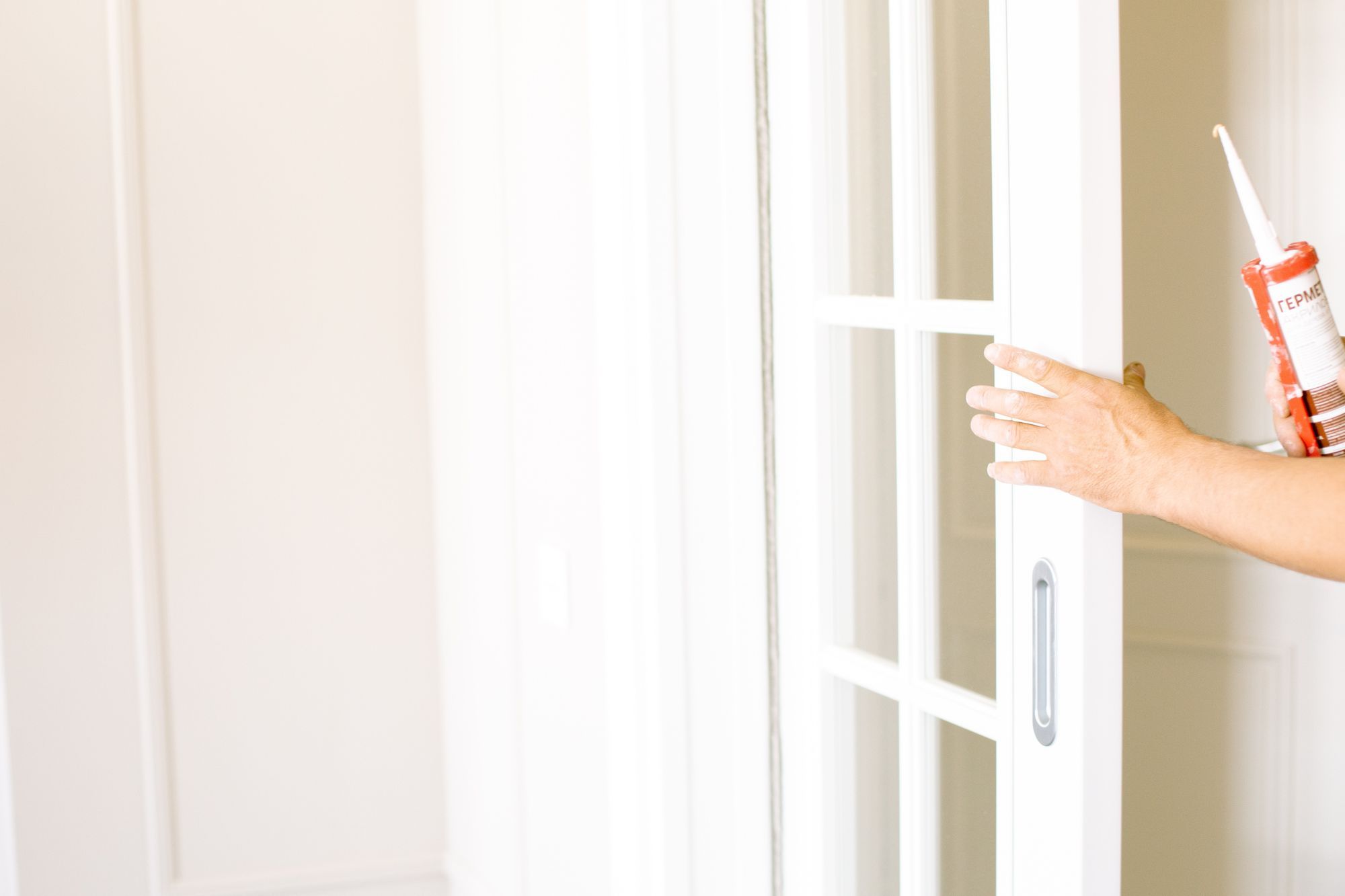Before you put your house up for sale, it can be a good idea to hire a home inspector to identify any issues with your home. By doing this beforehand, you won’t get close to completing the sale only to discover there’s a major problem that will bring everything to a halt.
At the same time, just because an inspector finds something that needs to be fixed, that doesn’t mean you necessarily need to heed their advice.
So, before you pay to make any fixes after a home inspection, be sure you know which ones are actually mandatory.
The 3 Types of Fixes After a Home Inspection
The easiest way to think about this is by grouping the potential repairs you could make to your home into three different categories.
Just keep in mind that any repairs need to be agreed upon between the buyer and seller during due diligence. Otherwise, the seller may not be liable for them.
1. Mandatory Home Inspection Repairs
To be clear, there is no such thing as a “mandatory” repair you legally have to make following a home inspection.
Instead, standard purchase agreements usually contain some kind of contingency that states the buyer can drop out of the sale if the inspection reveals major flaws in the house.
Of course, that’s never ideal. Putting your house back on the market after a sale fell through almost guarantees you’ll have to drop the price to attract new interest.
Therefore, the types of repairs you should strongly consider – though they may not be “mandatory” – are those that involve the structural integrity of your home and any that would be necessary to ensure the safety of its residents.
For example, if the foundation is in trouble or the inspector found black mold, you probably need to find room in your budget to fix those before hoping to find a buyer.
If those kinds of repairs simply aren’t going to be in your budget any time soon, you can always consider listing your home as an as-is property. This means that you’re selling the house “as is” and won’t entertain requests to make repairs of any kind. No matter how bad the roof is, the state of the appliances, or even if there is a major termite problem, the buyer either agrees to take it “as is” or to move on.
2. Home Inspection Repairs You Can Ignore
If you’ve owned your home for any amount of time, chances are it’s not pristine. It doesn’t look exactly like it did when you spent your first day in it.
So, of course, there may be some cosmetic issues throughout your home. While your inspector won’t consider them important enough to mention, a potential buyer may try to pass them off as mandatory repairs. They might think they have enough leverage to do so, less you risk losing out on the sale entirely.
That’s a choice you’ll have to make, but you should know that there’s nothing “mandatory” about cosmetic repairs to your house.
The same usually goes for minor problems, too, the type of wear-and-tear that is unavoidable over the years.
Again, it’s a good idea to specifically stipulate what repairs you’ll consider in the purchase agreement, so you can avoid even entering into negotiations with a potential buyer simply because they think your five-year-old carpet is a bit worn.
3. Home Inspection Repairs You Should Consider
It would be great if there was a bright red line that separated the above two categories.
Unfortunately, it’s more like a gray area.
These represent the kinds of problems that don’t necessarily threaten the integrity of your home but aren’t simple cosmetic issues, either.
For example, if the plumbing is defective or you have appliances that don’t work anymore, you may want to consider addressing them. Remember, what you really don’t want is a sale falling apart.
This is when a Comparable Market Analysis (CMA) can help put things into perspective. The better you understand your market, the better you’ll be able to decide just how important potential fixes are to the selling of your home.
How to Effectively Negotiate Repairs After a Home Inspection
If you’re now relatively sure that you’ll need to make at least one or two repairs to your house before you’ll be able to sell it, or you have a buyer who’s already demanded as much, don’t worry.
For one thing, you can try to negotiate with potential buyers, especially if the market is in your favor. They might agree to buy the home if only some of the repairs are done first provided you drop the price.
That being said, if the decision to not make certain repairs would be a total dealbreaker, you could offer the buyer closing cost credits in lieu of paying for that work. Those closing credits would be applied toward the buyer’s escrow account at the time of closing.
Many buyers will actually leap at the chance to take those credits. Among other things, it means they can hire whomever they want, give direct input about how they want the work done, and forego any back-and-forth that might otherwise take place between the two parties while the repairs are going on. They also won’t have to wait for the repairs to get done, which is particularly important if they’ve already sold their house or are hoping to do so soon.
Work with an Experienced Realtor Before Paying for Repairs
However, it’s not as simple as just promising buyers the money or even writing them a postdated check for the day of closing. The agreement must be in the contract and must be very specific. Even a small mistake in the phrasing could be enough to lose the buyer their lender and ruin the sale.
That’s one of the many reasons to hire a knowledgeable real estate agent before selling your house. These kinds of common situations require their experience and skill.
At SimpleShowing, we’d love to introduce you to a helpful real estate agent whose services you can secure for just a 1% commission.
Contact us today and we’ll explain how our simple process works.
Other Considerations
It's essential to recognize that not all fixes after a home inspection are created equal. While some may seem like an easy fix, others might require more attention. For the average person, distinguishing between these can be as straightforward as understanding the difference between over-the-counter home remedies and those that need professional intervention. Certain issues, such as high levels of radon or structural problems, are not just quick fixes but can form bacteria or other conditions detrimental to the home's integrity and the residents' health.
It's crucial to keep your eyes fixed on these significant issues, especially when people expect a safe and secure living environment. In the realm of real estate, the best thing a homeowner can do is address these critical issues promptly. While it may seem tempting to resort to quick fixes or ignore problems the average person might suspect as insignificant, it's important to remember that these can escalate over time. Fixing them at the exact time they are discovered not only maintains the home's value but also ensures a smoother sale process.
Homeowners should be aware that not all remedies require extensive effort; some solutions can be as simple as running warm water through pipes to prevent freezing. However, for more complex issues, professional help is often the best course of action. Remember, when it comes to home repairs, what you choose to fix or overlook can significantly impact both the present and future state of your property.
Conclusion
A home inspection report is an instrumental part of the home sale process that can either facilitate or disrupt real estate transactions. It often highlights requested repairs spanning from common fixes such as electrical issues, to major repairs like structural defects and safety issues. While not all findings in home inspections are required to be fixed, it is crucial to address building code violations, electrical issues, and safety hazards immediately. These necessary repairs often fall under a reasonable repair request and are typically non-negotiable in most buyers' eyes.
Home inspections also form a vital part of the home inspection contingency, offering an opportunity for buyers to request repairs or negotiate for a price reduction. This is especially true in a buyer's market, where the purchaser has more leverage. However, it's essential to remember that not all requested repairs need to be resolved before closing. Instead, focus on the most important ones—those that pose health or safety risks or might affect the property's insurability. By understanding the role of the home inspection report in the home sale process, sellers can better prepare for successful real estate transactions.






